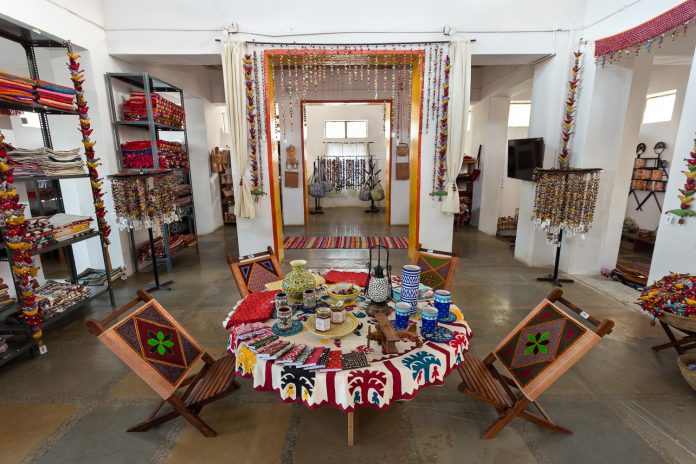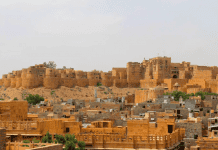During my journey as a traveler, I meet innumerable people from different walks of life, many of whom have lived a life in ways polar opposite to mine. While there are some I have never seen for more than a few hours, there are others who have turned into lifelong friends and yet others who have managed to inspire me in ways unexplained. My mind often rushes through the memory lane, one episode after the other, one incident after the other, one remembrance after the other, often resulting in a write-up like this one. One such episode from my travel tales takes me back to the ever-inspirational village of Tilonia. A self-sufficient, self-sustainable village situated in the Ajmer district of Rajasthan in India that proved to me how powerful human intelligence is, what impact unity can create and what development India is proudly undertaking. A village standing at the forefront of rural development, Tilonia changed my perspective about rural India as I am sure it did to many minds, like mine.
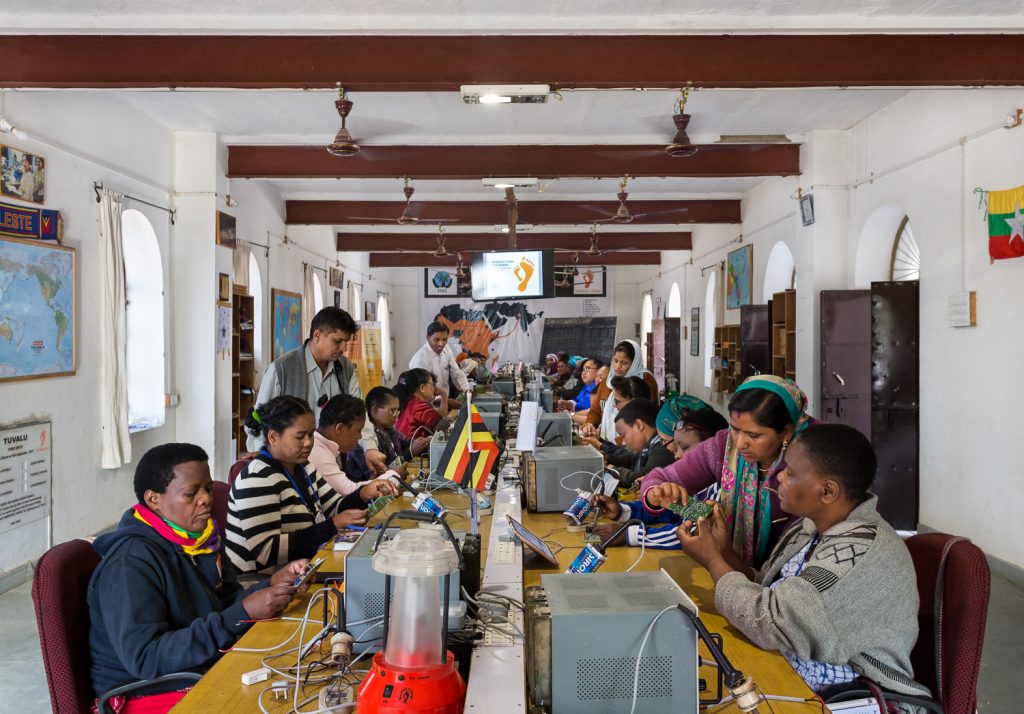
Bhaya, an old man and a local resident in his 60s was kind enough to show me around. He agreed to walk with me through the barren lands of the village, introducing me to other villagers, explaining the functional aspects and taking me to the factories, which were set up exceptionally well to implement simple yet effective ideas. Bhaya told me about the establishment of Barefoot College, the home of Tilonia that works to improve the lives of the rural poor, mainly women, by directly addressing their usual, common, basic needs for income, education, housing, health, water, and electricity. He told me the college, which has been functional since 1972, has had a revolutionary impact on India. Today, this world-renowned college trains poor rural women of nearly 49 countries in Asia, Africa, and Latin America in the field of solar energy. These women come to Tilonia, live there for months, get trained, become solar engineers, and further implement the successful model in their respective regions to create energy from solar panels. Apart from this, Barefoot College also works in areas like healthcare, education, water, rural handicrafts, people’s action, communication, women empowerment, income generation, power, social awareness, wasteland development, electricity, and conservation of ecological systems in rural communities.
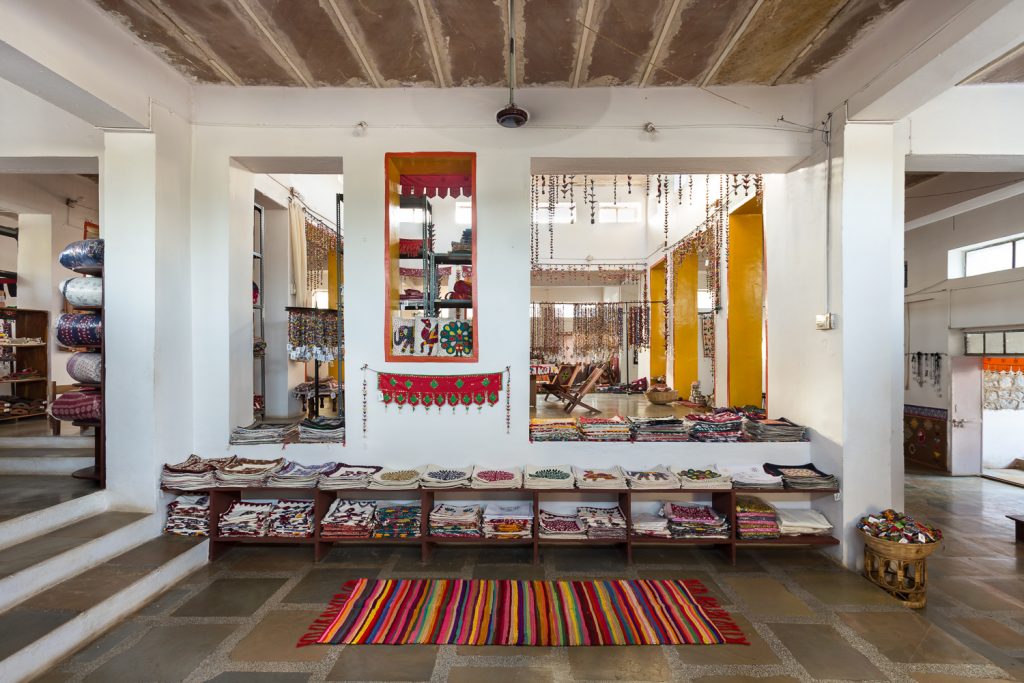
Highly impressed by this, I went on to meet the artisans of Tilonia – illiterate villagers who, despite the lack of education, have woven a career for themselves. They are perhaps the same group of people or young members of those belonging to the rural ‘barefoot’, who are blacksmiths, farmers, architects, masons, and women who struggled through the initial basic designing of the eight acres of campus land. The artisans here produce a range of handcrafted items from decorative mobile covers to handmade paper books, scarves, and other accessories. What’s more? The fine collection of home textile features a variety of decorative pillows, bedspreads, quilts, and duvet covers suitable for contemporary decorative styles that reflect Indian craft traditions, thus giving an impetus to the very essence of Indian textiles and craft. The art and skills of these artisans certainly reflect through their work and make me think what bright gems these people are! I am very fond of handmade books, so for me this market was a paradise. I couldn’t resist buying a handful of colorful books along with other fancy articles like bags and necklace.
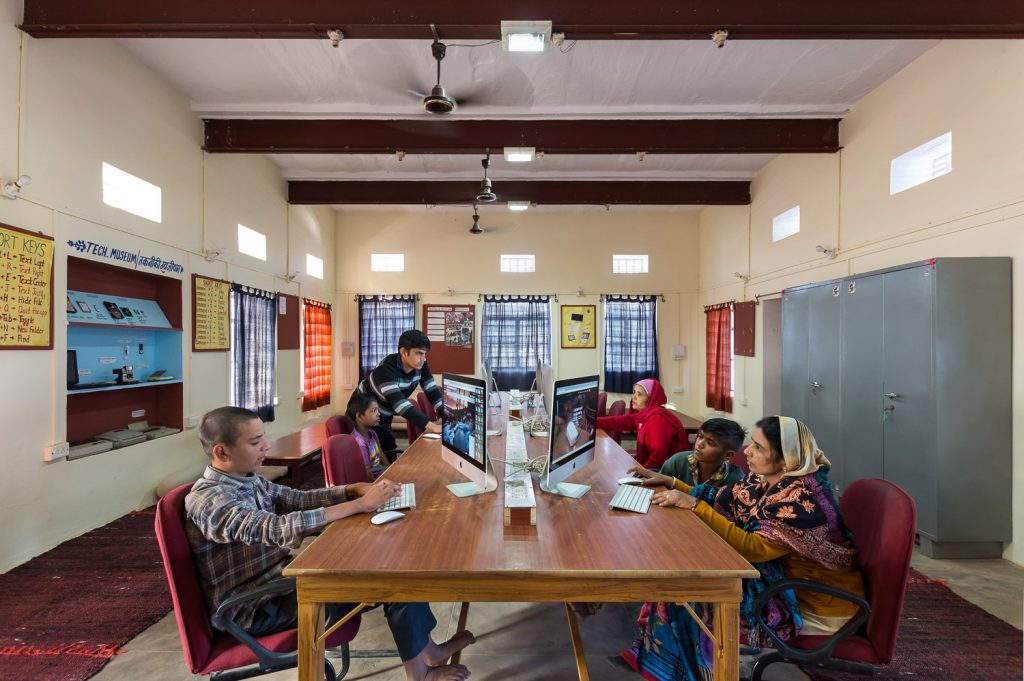
Now, coming to my favorite moment on the whole trip – meeting young and enthusiastic children belonging to Tilonia and nearby villages (who had come to study and work there). I had the opportunity and time to interact with them, enjoying the local homemade food. And, to my surprise, these children were a very happy lot! I often meet children who study at NGO-run schools; they lack confidence and are often shy to talk about themselves or their lifestyles. But these children from Tilonia and nearby villages were happy, confident, and curious. Oh, what relief I felt on seeing them! I could see the values of Barefoot grow here. I could see the vision of imparting informal, non-structured, and on-the-job practical training get accomplished here; this was done by identifying the poor and unemployed youth, who have not been able to finish their formal education and have returned to their respective villages as dropouts, and then training them.
I learnt how Barefoot imparts education about the awareness of environment and socioeconomic & political forces that dominate development with the help of different programs for children and women. There are balwadis (rural crèches) established for children between the age of 6 months to 5 years for the convenience of working mothers. Similarly, there are night schools that have been set up for ‘working children’. There are bridge courses – for night-school children who aspire to join formal day schools. In the night school, initiatives like the children’s parliament are established with an aim of allowing them to participate in the management of their schools through a democratic process.
After the interaction and the exploration, I could hardly wait to meet the man behind the revolutionary establishment of Barefoot College and the evolution of Tilonia and other similar villages – Sanjit ‘Bunker’ Roy. I had heard a lot about him for years now and his stories inspired me to visit Tilonia. Sanjit Bunker is an Indian social activist and educator, who is influenced by the philosophy of Mao Zedong and has modeled his organization after Mao’s Barefoot Doctors. He has worked all his life with Barefoot College, where he started his journey of working together with the remotest communities to attain his vision of a sustainable society in India. I consider myself extremely lucky to have found a chance to interact with him, the “young soul”. For those who are keen to learn more about him, watch his very famous and inspiring TED talk. I propose a toast to many more leaders like Bunker Roy and many more inspiring villages like Tilonia. Indeed, Tilonia BECKONS you to visit the rural gem in the heart of the country and experience its simple and rustic village life.
Picture courtesy: Kunal Bhatia


